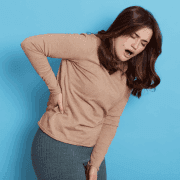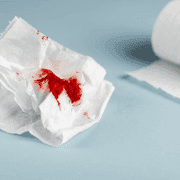Female Piles Treatment: Understanding, Managing, and Overcoming
In This Article
Female Piles Treatment: Understanding, Managing, and Overcoming
Prathibha
Updated on March 22, 2025
Medically verified by Dr. Arya
Fact checked by Dr. Fazeela

Proctology
7 min read
Piles, also known as hemorrhoids, are a common medical condition that can affect anyone. However, women often experience unique challenges due to biological factors like pregnancy, childbirth, and hormonal changes. Addressing this issue with proper care and timely treatment can lead to significant relief and improved quality of life. In this blog, we delve into the causes, symptoms, prevention strategies, treatment options, and recovery processes specifically for women dealing with piles.
Causes of Piles in Women
Piles occur when the veins in the rectal or anal area become swollen and inflamed. For women, several factors can contribute to this condition
1. Pregnancy: Increased pressure in the pelvic area during pregnancy can lead to swollen veins and piles.
2. Childbirth: Straining during labor often exacerbates or triggers female piles.
3. Hormonal Changes: Hormonal fluctuations during menstruation, pregnancy, and menopause can affect bowel habits, leading to constipation and female piles.
4. Chronic Constipation: Poor dietary habits and inadequate fiber intake can result in difficulty passing stool.
5. Prolonged Sitting: Many women with sedentary jobs or lifestyles are prone to developing piles due to consistent pressure on the anal area.
6. Obesity: Excess body weight adds pressure to pelvic veins, increasing the risk of female piles.
Symptoms of Piles in Women
Recognizing the symptoms of piles is essential for seeking early treatment. Common signs include
-
Pain or Discomfort: A persistent ache or sharp pain during bowel movements.
-
Itching or Irritation: A common symptom in the anal region due to inflammation.
-
Swelling: A lump or swelling near the anus, which can sometimes be painful.
-
Bleeding: Bright red blood during or after bowel movements.
-
Mucus Discharge: This can accompany bowel movements and add to the discomfort.
-
Feeling of Incomplete Evacuation: A sense that the bowel is not fully emptied.
If you experience these piles symptoms, consult a healthcare professional promptly for diagnosis and tailored treatment.
 5 min read
5 min readDon't Ignore Bummy Pain: Could It Be Piles?
 7 min read
7 min readBlood In The Stool: A Sign You Shouldn’t Ignore
 6 min read
6 min readSitting All Day Wreaking Havoc? It Might Be Piles!
Get a Callback Now
Prevention of Piles in Women
Preventing piles in female involves adopting a healthy lifestyle and making small but impactful changes to daily habits. Here are some effective strategies
-
High-Fiber Diet: Include fruits, vegetables, whole grains, and legumes to ensure smooth digestion and prevent constipation.
-
Stay Hydrated: Drink at least 8–10 glasses of water daily to soften stools.
-
Regular Exercise: Engage in activities like walking, yoga, or swimming to promote healthy bowel movements.
-
Avoid Straining: Avoid excessive pushing during bowel movements.
-
Scheduled Bathroom Habits: Go to the restroom when the urge arises and avoid holding in stools.
-
Proper Posture: Use a small stool to elevate your feet while on the toilet to ease bowel movements.
-
Stress Management: Practice mindfulness or meditation to reduce stress, which can indirectly affect gut health.
Surgical Treatments for Piles
While mild piles can often be managed with dietary changes and medication, some cases require surgical intervention. Advanced techniques offer minimally invasive solutions with quicker recovery times. Key surgical options include
-
Rubber Band Ligation: A rubber band is placed around the base of the hemorrhoid to cut off blood supply, causing it to shrink and fall off.
-
Sclerotherapy: A chemical solution is injected into the hemorrhoid to shrink it.
-
Infrared Coagulation (IRC): A heat treatment that shrinks the hemorrhoid tissue.
-
Hemorrhoidectomy: Surgical removal of large or severe piles.
-
Stapled Hemorrhoidopexy: A procedure that repositions the hemorrhoids and reduces blood flow to them.
-
Laser Treatment: A highly advanced, minimally invasive method to treat piles painlessly with quick recovery. Laser treatment has gained popularity due to its precision and minimal downtime.
Consult a specialist to determine the most suitable option based on the severity of your condition.
Recovery and Aftercare for Piles Treatment
Post-treatment care plays a crucial role in ensuring successful recovery and preventing recurrence. Key tips include
1. Follow Medication Guidelines: Take prescribed painkillers or laxatives as directed.
2. Hygiene Maintenance: Keep the anal area clean and dry to avoid infections.
3. Avoid Heavy Lifting: Refrain from strenuous activities for a few weeks post-surgery.
4. Sitz Baths: Warm sitz baths can help soothe discomfort and promote healing.
5. Dietary Adjustments: Stick to a high-fiber diet and stay hydrated.
6. Regular Follow-Ups: Attend all scheduled check-ups to monitor healing progress.
FAQs
1. What causes piles in women specifically?
Hormonal changes, pregnancy, and childbirth are common triggers for piles in women. Factors like constipation, obesity, and sedentary lifestyles also contribute. Timely consultation and right guidance through best treatment for piles in female can make a great change.
2. Are piles more common during pregnancy?
Yes, pregnancy increases the risk of piles due to pressure on the pelvic veins, hormonal changes, and constipation.
3. Is laser treatment for piles safe for women?
Absolutely! Laser treatment is a safe, minimally invasive procedure with quick recovery and minimal discomfort.
4. Can piles be completely cured?
With proper treatment and lifestyle changes, piles can be effectively managed or cured. However, recurrence can happen if preventive measures aren’t followed.
5. How can I prevent piles from recurring after treatment?
Adopt a high-fiber diet, stay hydrated, maintain regular exercise, and avoid straining during bowel movements to prevent recurrence.
6. How do I choose the right treatment for piles?
Consult a qualified healthcare professional who can evaluate your condition and recommend the best treatment option tailored to your needs.
7. Can pregnancy increase the risk of developing piles in women?
Yes, pregnancy can increase the risk of piles due to hormonal changes, increased blood volume, and pressure on the pelvic veins caused by the growing uterus. Straining during delivery can also contribute to the development of piles.
8. Are piles more common during menopause?
While not directly caused by menopause, hormonal changes and reduced tissue elasticity during this stage can make women more susceptible to piles, especially if they have a history of constipation or straining.
9. What are some non-surgical treatment options for piles in women?
Non-surgical options include lifestyle changes (high-fiber diet, hydration), topical creams, sitz baths, and minimally invasive procedures such as rubber band ligation or infrared coagulation.
10. Is laser treatment for piles safe for women of all ages?
Yes, laser treatment is generally considered safe and effective for women of all ages. It is a minimally invasive procedure with a quick recovery time and minimal risk of complications.
11. Can piles recur after treatment in women?
Yes, piles can recur if preventive measures are not followed, such as maintaining a healthy diet, avoiding constipation, and avoiding prolonged sitting. However, recurrence rates are lower with surgical or laser treatments when combined with lifestyle modifications.
12. What is the best way to manage piles during menstruation?
During menstruation, managing piles involves maintaining hygiene, avoiding constipation, and using pain relief methods such as sitz baths or doctor-recommended topical treatments.
13. Are there specific dietary changes women should follow post-treatment?
Yes, women should focus on a high-fiber diet, including fruits, vegetables, and whole grains, to prevent constipation. Adequate hydration and avoiding spicy or processed foods are also recommended.
14. How can I differentiate between piles and other gynecological issues?
Piles are associated with rectal bleeding, itching, or pain during bowel movements. Gynecological issues, such as vaginal bleeding or pelvic pain, differ in symptoms. A consultation with a healthcare provider can help diagnose the issue accurately.
15. Can breastfeeding mothers undergo surgical treatment for piles?
Yes, but it is essential to discuss the options with your doctor to ensure safety for both mother and baby. Many minimally invasive procedures are safe during breastfeeding.
16. What should women avoid doing after piles surgery?
Women should avoid heavy lifting, prolonged sitting, straining during bowel movements, and consuming low-fiber foods during recovery to prevent complications or recurrence.
By understanding and addressing the specific needs of female piles treatment, women can take proactive steps toward relief and improved quality of life. With advanced treatments and preventive care, a piles-free life is achievable.
Women face unique risks for piles due to pregnancy, hormonal changes, and lifestyle factors.
Symptoms include pain, swelling, itching, and bleeding during bowel movements.
Prevention strategies like a fiber-rich diet, hydration, and regular exercise are crucial.
Advanced surgical treatments, such as laser therapy, offer safe and effective solutions.
Post-treatment care is essential for recovery and preventing recurrence.
Source Links
Felix hospital.com
Suryahospitals.com



